Reddit Shares A Heartbreaking Fact About A Now-Extinct Species Of Bird, Waiting For A Mate That Will Never Come
Our world is currently facing a global extinction disaster unprecedented in human history. Scientists predict that over a million species will become extinct in the coming decades.
The world around us begins to fall apart when a species goes extinct. The effects on those regions, those species, and all of us are extensive.
These effects include practical efforts, such as water purification and agricultural pollination, as well as traditional and religious impacts. People have profound emotional connections to the wild world, despite the noise and speed of modern life.
Wildlife has influenced our histories, myths, language, and worldviews. The presence of animals brings us all delight and enrichment, and each extinction makes our world a lonelier and colder place for us and future generations.
We are fully responsible for the current extinction disaster. Habitat fragmentation, pollution, the spread of invasive species, overexploitation of wild resources, shifting weather patterns, rising human populations, and other human activities have pushed many species to the brink of extinction over the past century or more.
Addressing the extinction issue will necessitate leadership, as well as bold, courageous, and far-reaching actions that target the fundamental causes of this catastrophe. Species diversity promotes ecosystem resilience by providing ecological groups with the range they require to survive stress.
However, there are instances when humans can only watch a species go extinct. You can scroll down and read a sad fact from a Reddit user about a bird singing and waiting for a mate that will never come.
1. Meet this bird from Hawaii.
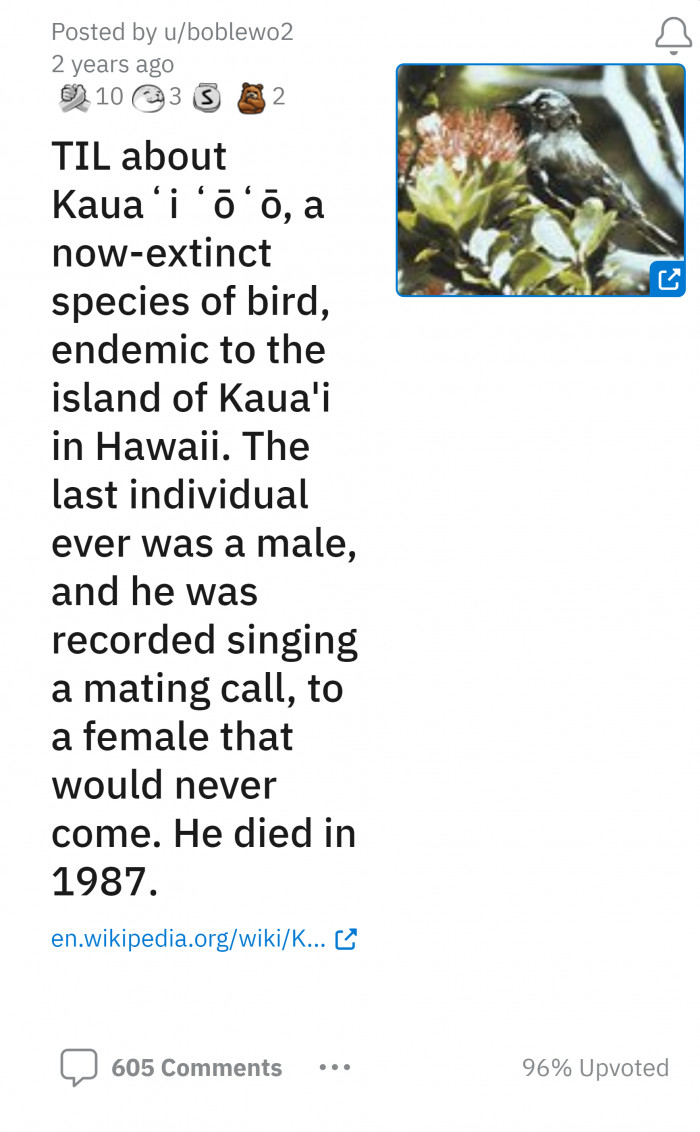
2. "The final member of a species is called an ending."
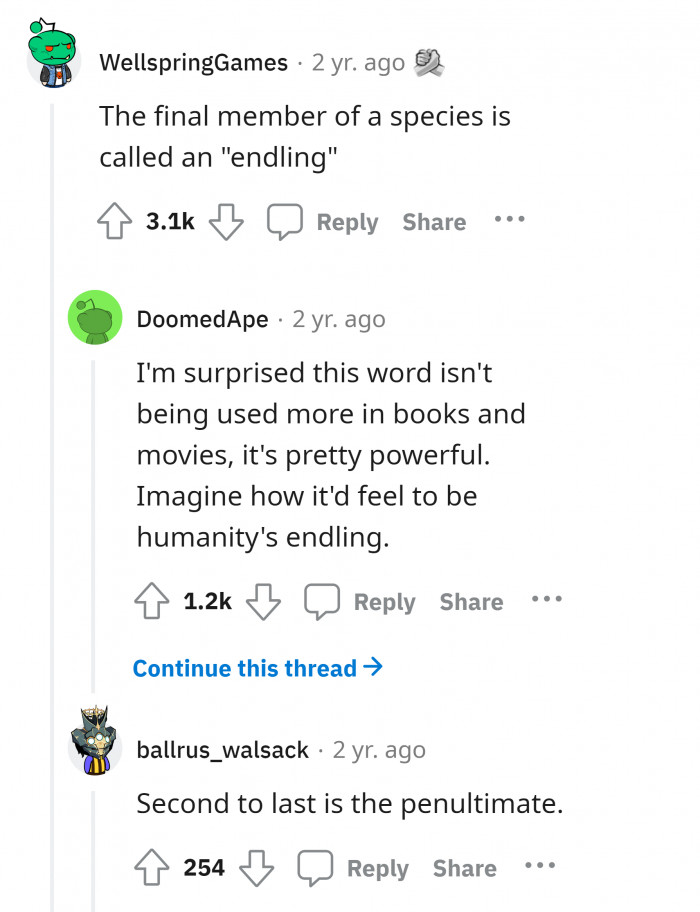
3. Wonder what the scientist would feel at that moment.
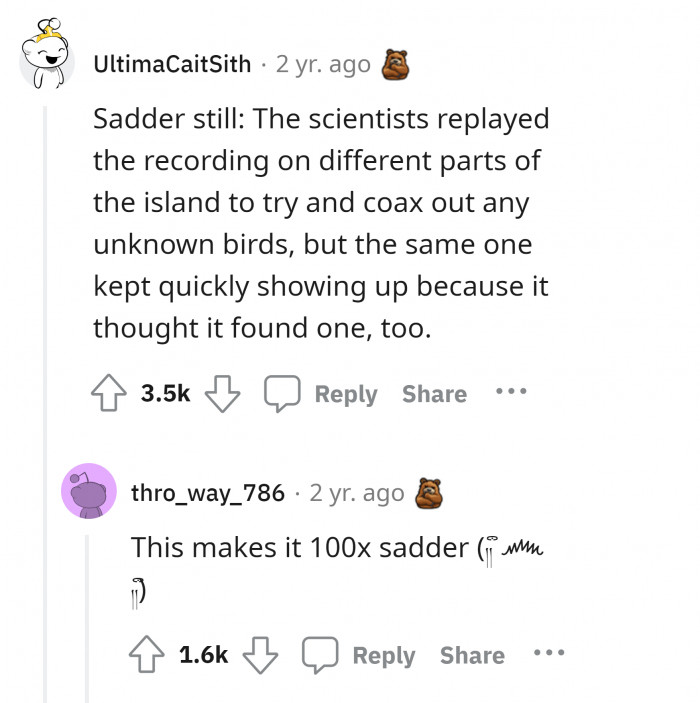
Empathy and Extinction: A Psychological Perspective
Dr. Rachel Moore, a psychologist specializing in conservation psychology, explains that the emotional response to extinction can be profound.
Research shows that empathy for endangered species can motivate individuals to engage in conservation efforts, particularly when they can relate to the animals' plight.
This connection can be a powerful driver for change, promoting actions that protect not just individual species but entire ecosystems.
The Emotional Weight of Extinction
The emotional response triggered by the extinction of a species is profound, reflecting our innate connection to the natural world. Research in environmental psychology has shown that humans often experience a sense of grief and loss when faced with extinction events. This emotional reaction is rooted in our evolutionary history, where our survival depended on understanding and connecting with our environment.
Moreover, the psychological impact of witnessing species extinction can lead to feelings of helplessness and despair, as highlighted by studies published in the Journal of Environmental Psychology. Such feelings can deter individuals from engaging in conservation efforts, making it essential to address these emotional responses to motivate positive action.
4. It is somehow relieving to know that information.
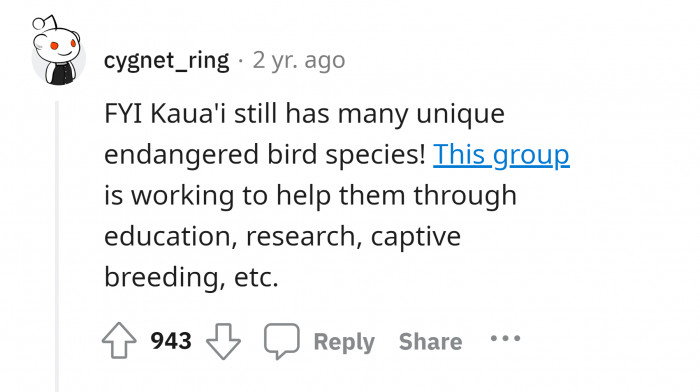
5. The feeling of emptiness is unbearable.
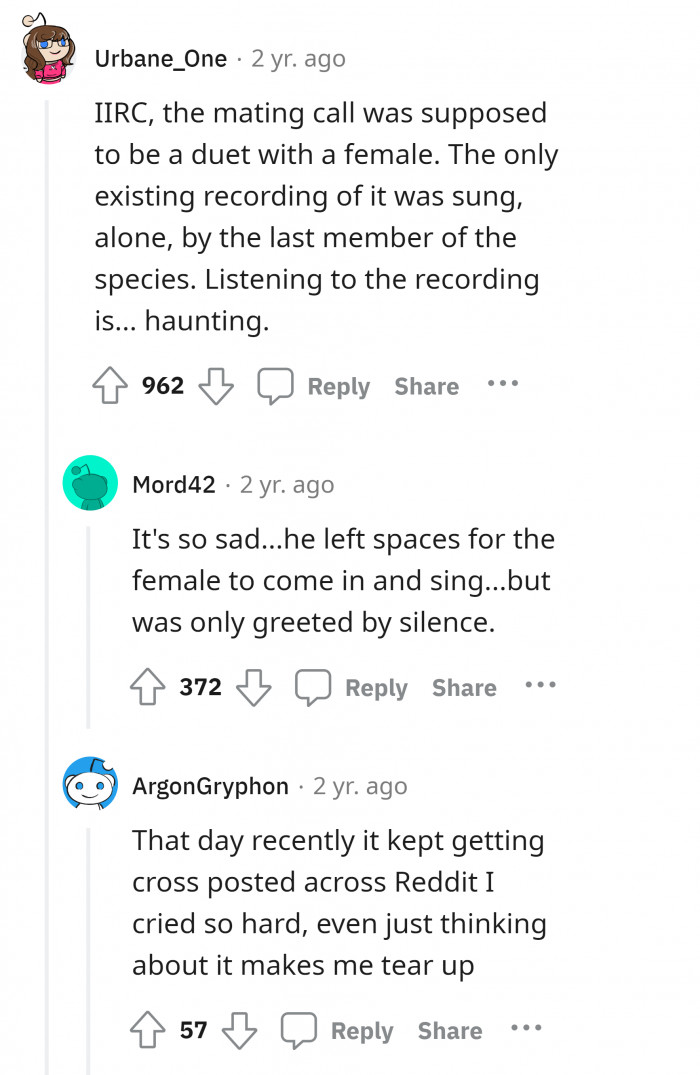
6. "The Anthropocene Reviewed."
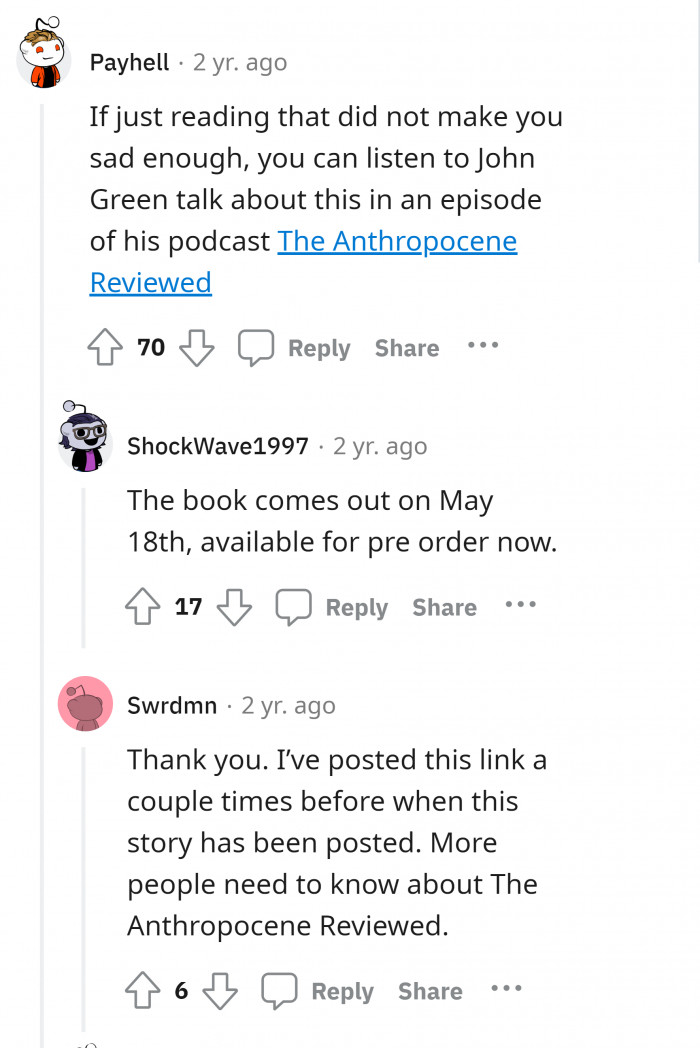
Moreover, studies indicate that the concept of 'compassion fatigue' can arise when individuals feel overwhelmed by the constant stream of negative news regarding extinction.
Psychologists suggest that maintaining a balance between awareness and emotional well-being is essential for sustaining long-term engagement in conservation.
Practicing self-care and focusing on actionable steps can empower individuals to stay actively involved without succumbing to despair.
Interestingly, the concept of 'eco-anxiety' has emerged as a relevant psychological response to environmental changes. Eco-anxiety refers to the chronic fear of environmental doom, and it can significantly affect mental health. As noted by Dr. Ramani Durvasula, a clinical psychologist, "The overwhelming nature of environmental crises can lead to feelings of helplessness and despair, which are central to eco-anxiety." This phenomenon is increasingly recognized among individuals who feel burdened by the scale of these challenges.
To mitigate these feelings, mental health professionals emphasize the importance of fostering hope and agency. Dr. Dan Siegel, a renowned psychiatrist, states, "Engaging in proactive behaviors, such as participating in conservation efforts, can transform feelings of helplessness into empowerment." This engagement can help individuals contribute to positive environmental change.
7. Wonder what the world would be without mosquitoes.
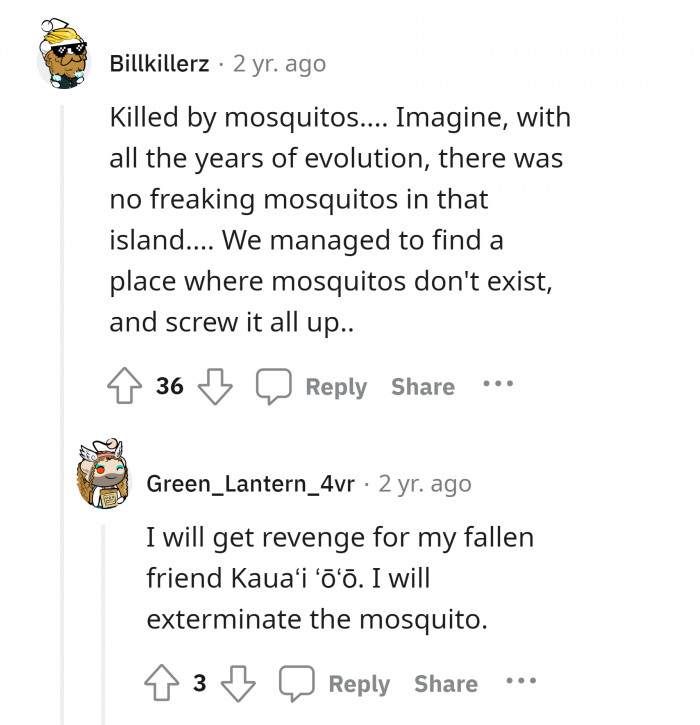
8. It's all about the "first impression."
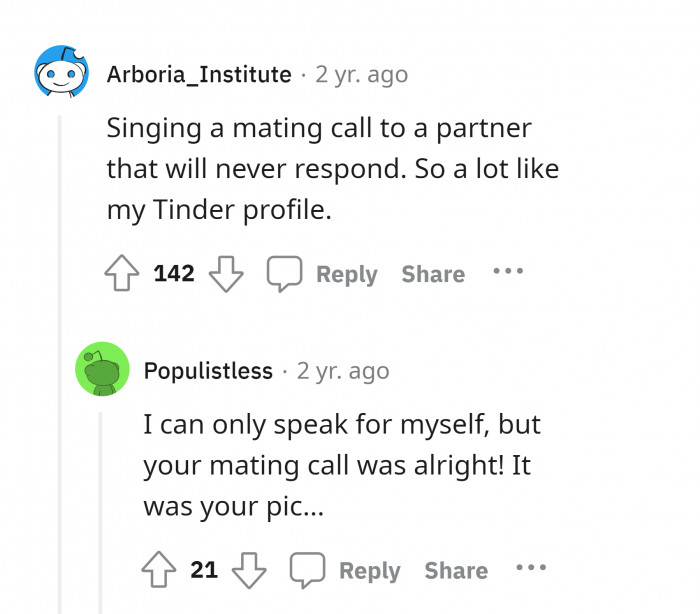
9. "Where have all the creatures gone?"
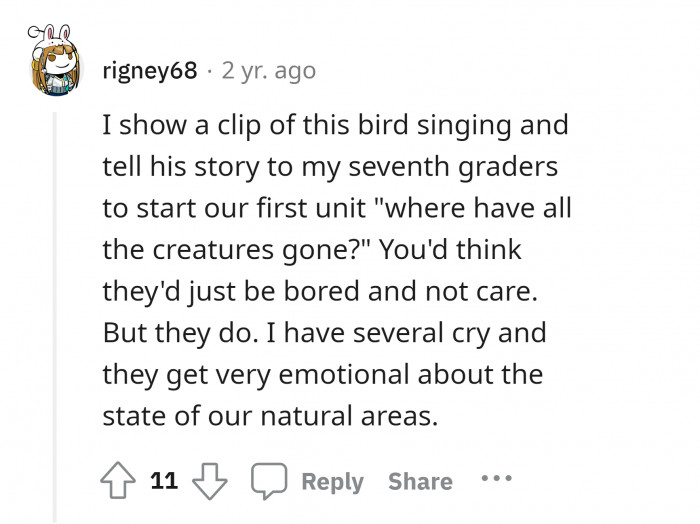
The Role of Storytelling in Conservation
Storytelling has long been a powerful tool in conveying the urgency of conservation efforts.
Research shows that narratives that humanize endangered species can enhance empathy and motivate action.
By sharing stories about the lives of these birds, we can cultivate a deeper understanding of their struggles and the importance of preserving their habitats.
The Role of Connection in Conservation
The extinction of a species can serve as a stark reminder of the interdependence between humans and nature. Understanding this connection is crucial for fostering conservation efforts. Research in ecological psychology highlights that the more individuals feel connected to the natural world, the more likely they are to engage in pro-environmental behaviors.
Furthermore, community-based conservation initiatives can enhance this sense of connection. Studies suggest that when individuals participate in local conservation efforts, they develop a stronger emotional bond with their environment, leading to increased stewardship and advocacy for wildlife.
10. "This was so heartbreaking."
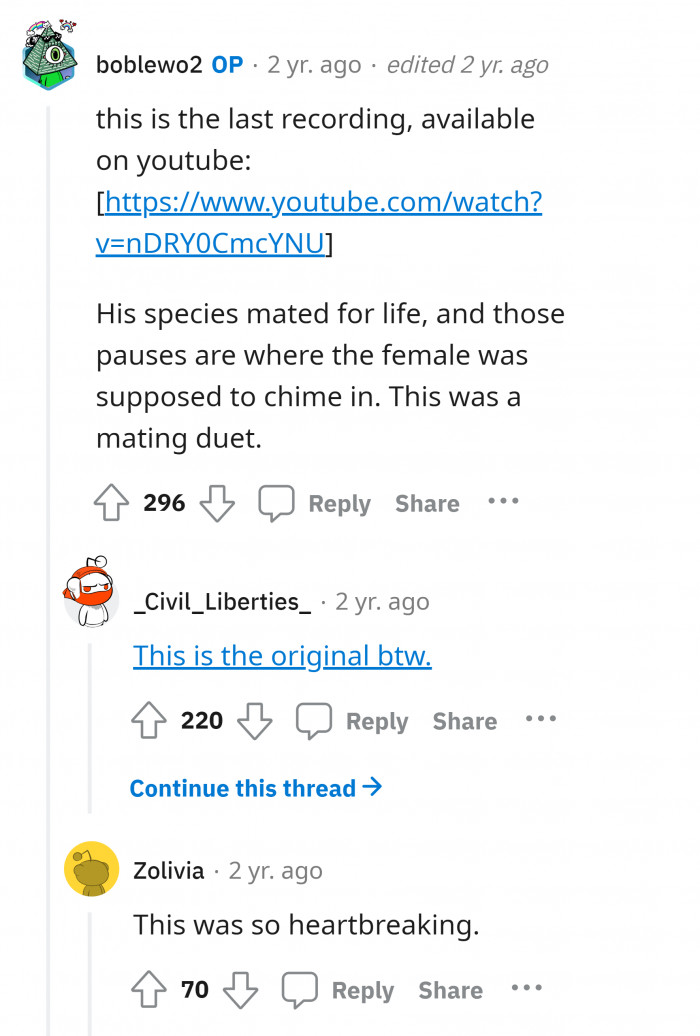
11. Our biodiversity is dying at our hands because of our selfish desires.
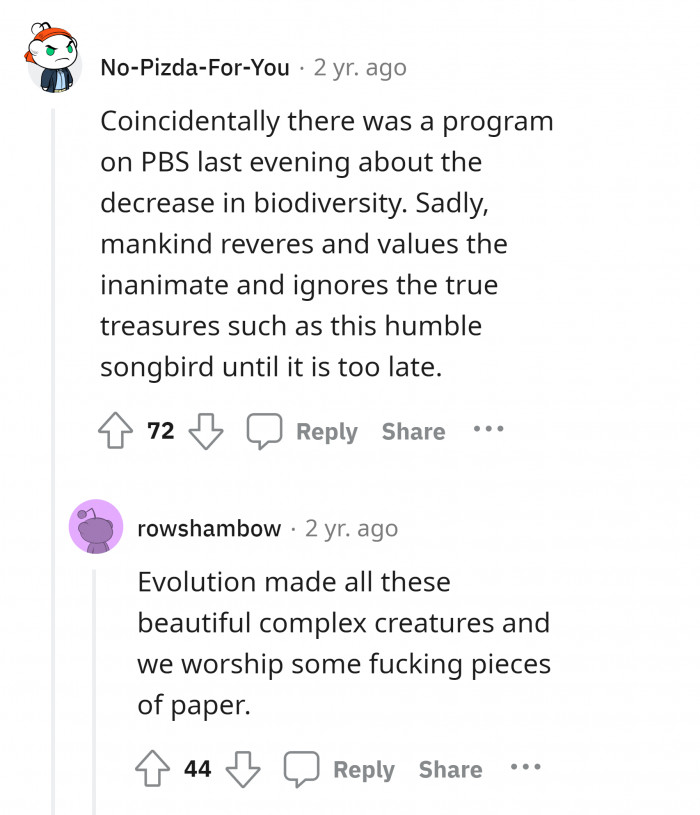
12. The relatable feeling of abandonment from someone you love.

Additionally, environmental psychologists highlight the role of community narratives in shaping collective efforts for conservation.
When communities come together to share stories of local wildlife, they strengthen their emotional ties to the environment and inspire collective action.
This shared narrative can foster a sense of purpose and belonging, which is vital for motivating community-led conservation initiatives.
To effectively address the emotional implications of extinction, educational programs must emphasize the importance of biodiversity. Research indicates that knowledge about the ecological roles of various species can enhance appreciation and concern for their conservation. According to studies published in the Conservation Biology, educational initiatives that promote awareness of extinction events can motivate individuals to take action.
Moreover, integrating storytelling and personal narratives into conservation education can evoke emotional responses that foster deeper connections to nature. By sharing stories of extinct species, we can inspire empathy and a desire to protect what remains.
13. "Such a beautiful song, and definitely haunting on its own."
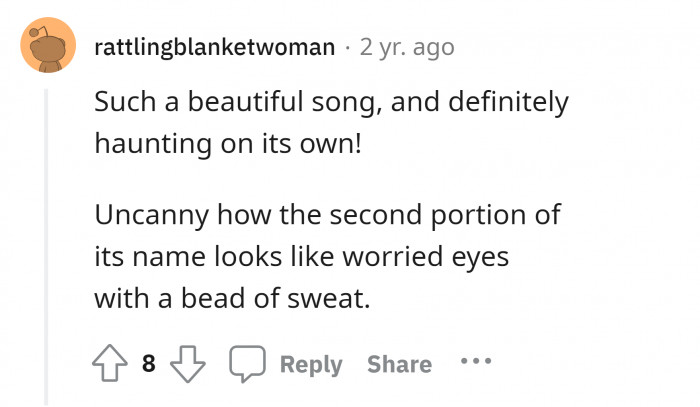
14. A rollercoaster of emotions.

15. "It has a subtle beauty to it that tugs at the heartstrings."
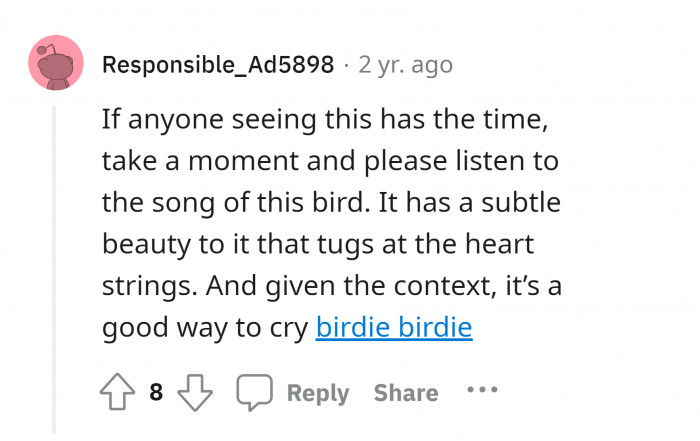
Strategies for Building Community Connections
To address the emotional impact of extinction, communities should organize storytelling events that focus on local wildlife.
Workshops where residents can share their personal experiences can help cultivate a collective narrative that honors the emotional connections to local species.
By fostering these connections, communities can create a supportive environment that encourages active participation in conservation efforts.
Transforming Grief into Action
Ultimately, the emotional weight of extinction can be transformed into a powerful catalyst for change. Research in positive psychology suggests that channeling grief into action can lead to meaningful engagement in conservation efforts. This can take the form of advocacy, volunteering, or supporting policies aimed at protecting biodiversity.
By providing avenues for individuals to express their grief through positive actions, we can foster resilience and a sense of purpose in the face of ecological challenges. Community support networks can play a vital role in promoting this transformation, helping individuals navigate their emotional responses while actively participating in conservation.
16. Same story with different characters.
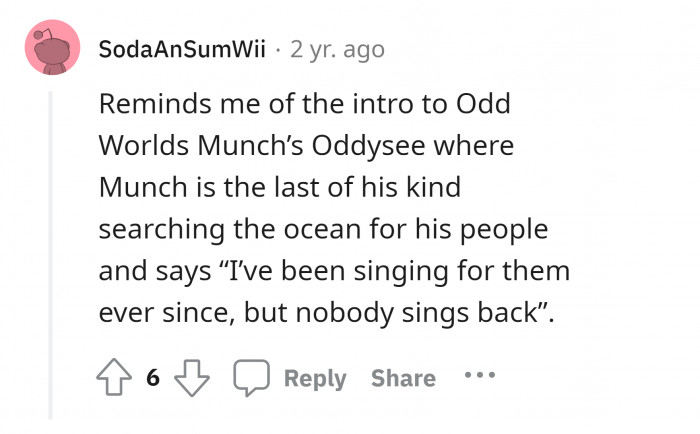
17. "I'd drop everything and move there in a heartbeat."

18. I can't help myself from reading these types of books even if they break my heart.
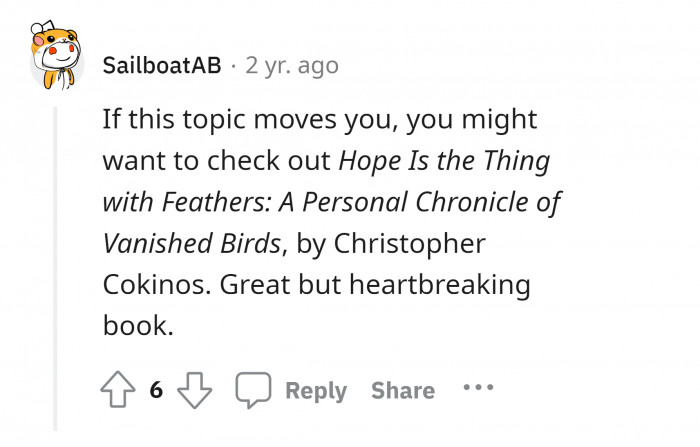
19. "Endling trying to find a mate in such a beautiful song."
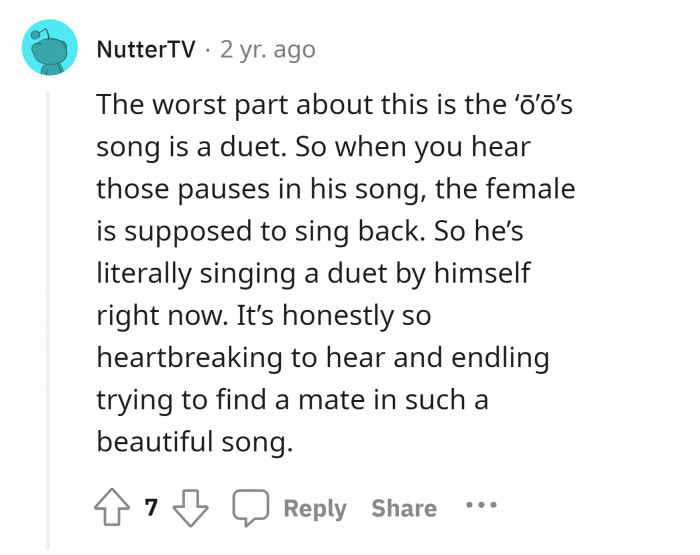
20. Did you clean your ears before listening to it?
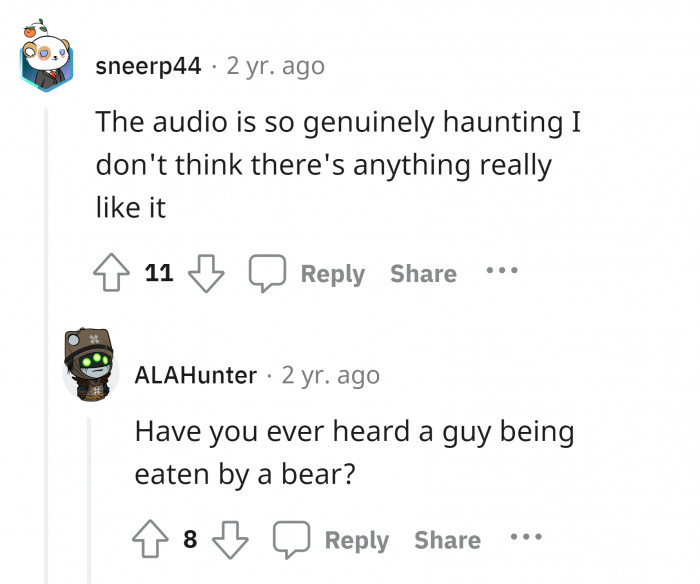
21. "That's your answer for everything."
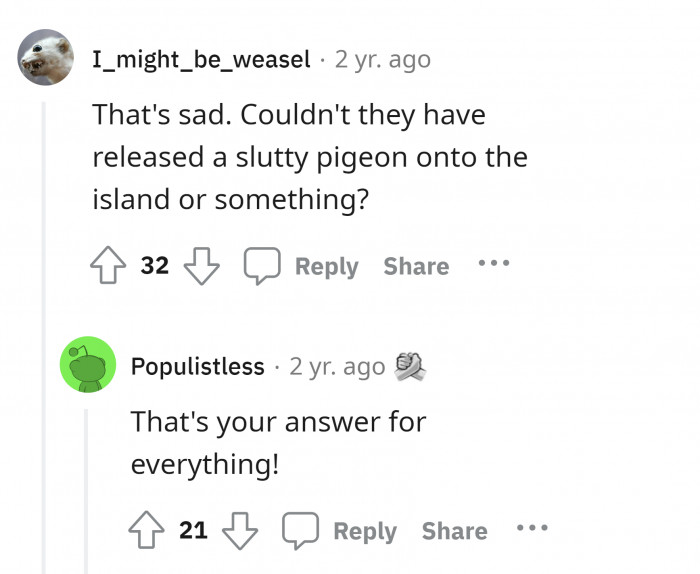
Conservationists prioritize rainforests and coral reefs because of the wide variety of life they support and the high stakes involved in their destruction. However, we should also take part in this initiative to prevent another case like this from happening.
We can help save globally lost species. Protecting local populations is the only method to ensure genetic variety, which is crucial for a long-term species' survival.
Psychological Analysis
This situation illustrates the complex emotions surrounding extinction and our connection to nature. It's vital to recognize that these feelings of loss can serve as powerful motivators for action. By channeling grief into conservation efforts, we can empower individuals to take meaningful steps toward preserving biodiversity and fostering a healthier relationship with our environment.
Analysis generated by AI
Analysis & Alternative Approaches
In conclusion, the emotional ramifications of species extinction highlight the need for a deeper understanding of our connection to nature. By addressing eco-anxiety and fostering a sense of agency through conservation efforts, we can transform feelings of grief into proactive engagement. Ultimately, creating a supportive community around these issues will empower individuals to embrace their role in protecting the environment.
Analysis & Alternative Approaches
Empathy and storytelling play crucial roles in our responses to extinction, influencing both individual and collective actions.
Research supports the idea that shared narratives can create a sense of community and purpose, motivating conservation efforts.
As we honor the stories of endangered species, we can foster a deeper commitment to protecting our planet's biodiversity.



